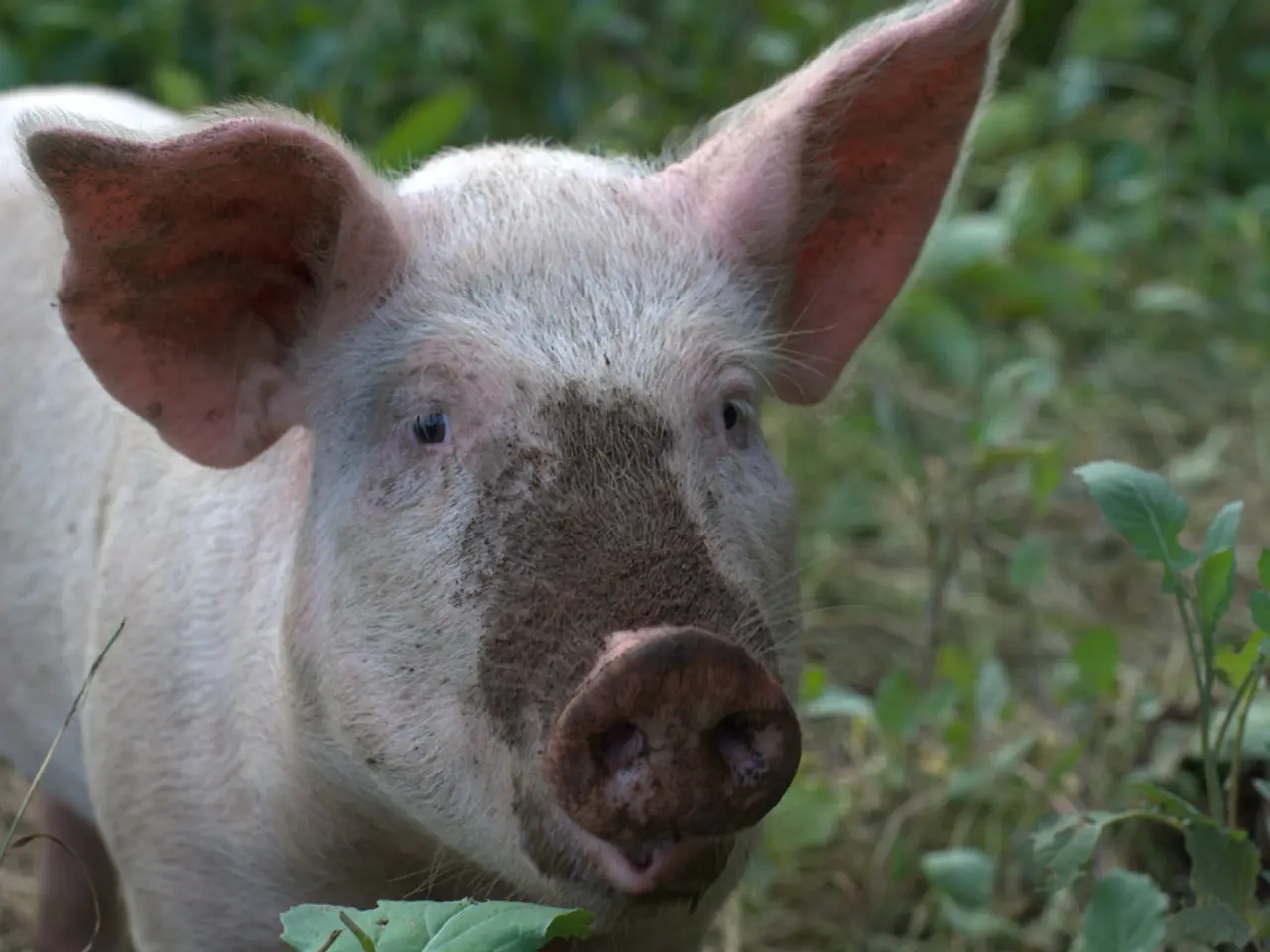Thirty-two edible items for guinea pigs
In the world of small pets, guinea pigs are beloved for their charming personalities and unique appearance. A crucial aspect of caring for these adorable creatures is providing them with a balanced diet that caters to their nutritional needs. Here's a comprehensive guide to the foods that are safe for regular feeding, occasional treats, and those that should be entirely avoided.
Guinea pigs thrive on a diet primarily consisting of fresh leafy greens and vegetables, making up approximately a teacup serving each day. Safe vegetables for regular feeding include spinach, Swiss chard, broccoli, cauliflower, and beets. Fresh herbs such as basil, dill, mint, thyme, and cilantro are also good but should be given only a few times a week and in small amounts due to their potency.
Fruits like orange, kiwi, mango, peach, and blueberries are suitable as occasional treats because they are high in sugar and should be introduced slowly to avoid digestive upset. Other safe occasional foods include edible wild plants such as dandelions, clovers, rocket (arugula), coriander (cilantro), mint, and watercress, which are rich in Vitamin C and fiber but should be fed in moderation to prevent issues like laxative effects or bladder stones due to high calcium content.
Timothy hay is high in fiber and helps limit the growth of guinea pigs' teeth, and is low in calcium and protein. Orchard hay can also be a better choice for elderly guinea pigs, and can also be used as a comfortable bedding material. Radish leaves are an excellent source of calcium for guinea pigs, but should be fed in moderation to avoid urinary issues.
Peas and pea shoots can be given to guinea pigs in moderation. Dandelion greens, flowers, and roots are suitable for guinea pigs to eat, in moderation. A small cube of cantaloupe will be more than enough for most guinea pigs, as it is high in sugar and should only be served as an occasional treat.
Clover leaves and flowers of red and white clover are high in calcium and good for guinea pigs, but clover hay should not be fed. Carrots can be fed to guinea pigs in moderation due to their high sugar content. Unseasoned popcorn can make a delightful snack for guinea pigs on special occasions.
Eggplant can be given as an occasional treat, but eggplant leaves and stems are toxic to guinea pigs. Guinea pigs can eat apple leaves and twigs as a free and enriching foraging option. Baby corn can be a treat for guinea pigs. Raspberries are safe for guinea pigs in moderation, making up less than 5% of their diet. Celery can be given to guinea pigs as an occasional treat, chopped into thin, manageable slices.
Tomatoes can be fed to guinea pigs in moderation, as a treat, but the plant should not be given to them. Spinach can be fed in moderation, as it contains oxalates that can cause urinary issues in guinea pigs. Apples can be fed to guinea pigs once or twice a week, as a treat, but in slices to avoid overfeeding.
Foods to avoid entirely include iceberg lettuce, garlic, onions, mushrooms, potatoes, nuts, seeds, and dairy. Also, dairy should not be fed as part of their regular diet (emergency feeding with goat's milk may be used under expert guidance, but not routinely).
This diet ensures guinea pigs get the necessary nutrients like Vitamin C and fiber, crucial for their health, while avoiding toxic or harmful foods. By following this guide, you can ensure your guinea pig enjoys a long and healthy life.
- Guinea pigs, in their home-and-garden dwelling, are best fed a diet composed primarily of fresh leafy greens and vegetables, such as spinach, Swiss chard, broccoli, cauliflower, and beets.
- Safe occasional fruits for guinea pigs include orange, kiwi, mango, peach, and blueberries, which are high in sugar and should be introduced slowly to prevent digestive issues.
- Timothy hay, rich in fiber and low in calcium and protein, helps in limiting guinea pigs' tooth growth and can also serve as comfortable bedding material.
- Guinea pigs can consume peas and pea shoots in moderation, while dandelion greens, flowers, and roots are suitable, also in moderation, due to their high Vitamin C and fiber content.
- Certain foods, like iceberg lettuce, garlic, onions, mushrooms, potatoes, nuts, seeds, and dairy, must be entirely avoided to ensure a long and healthy life for your pet guinea pig.



